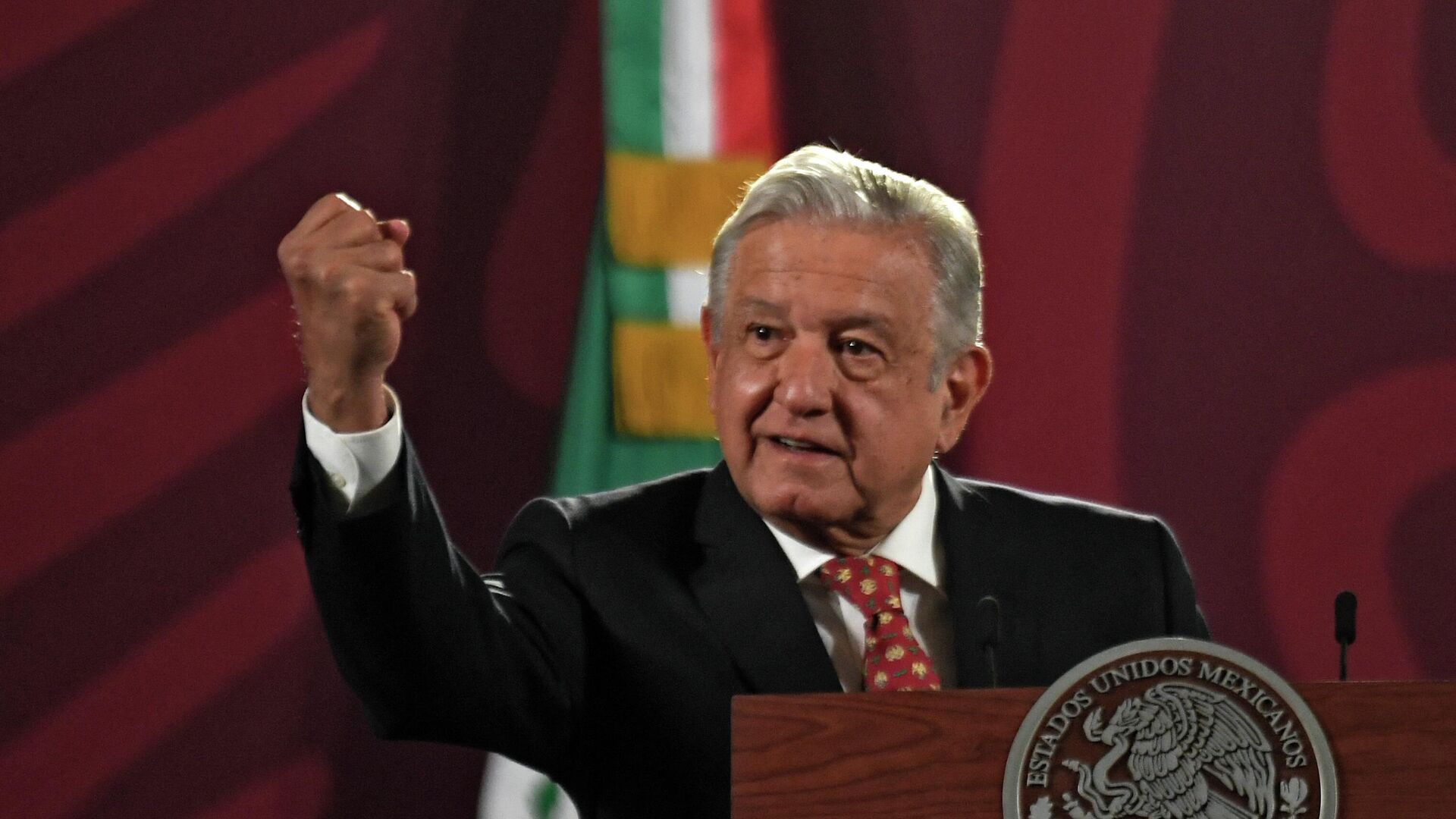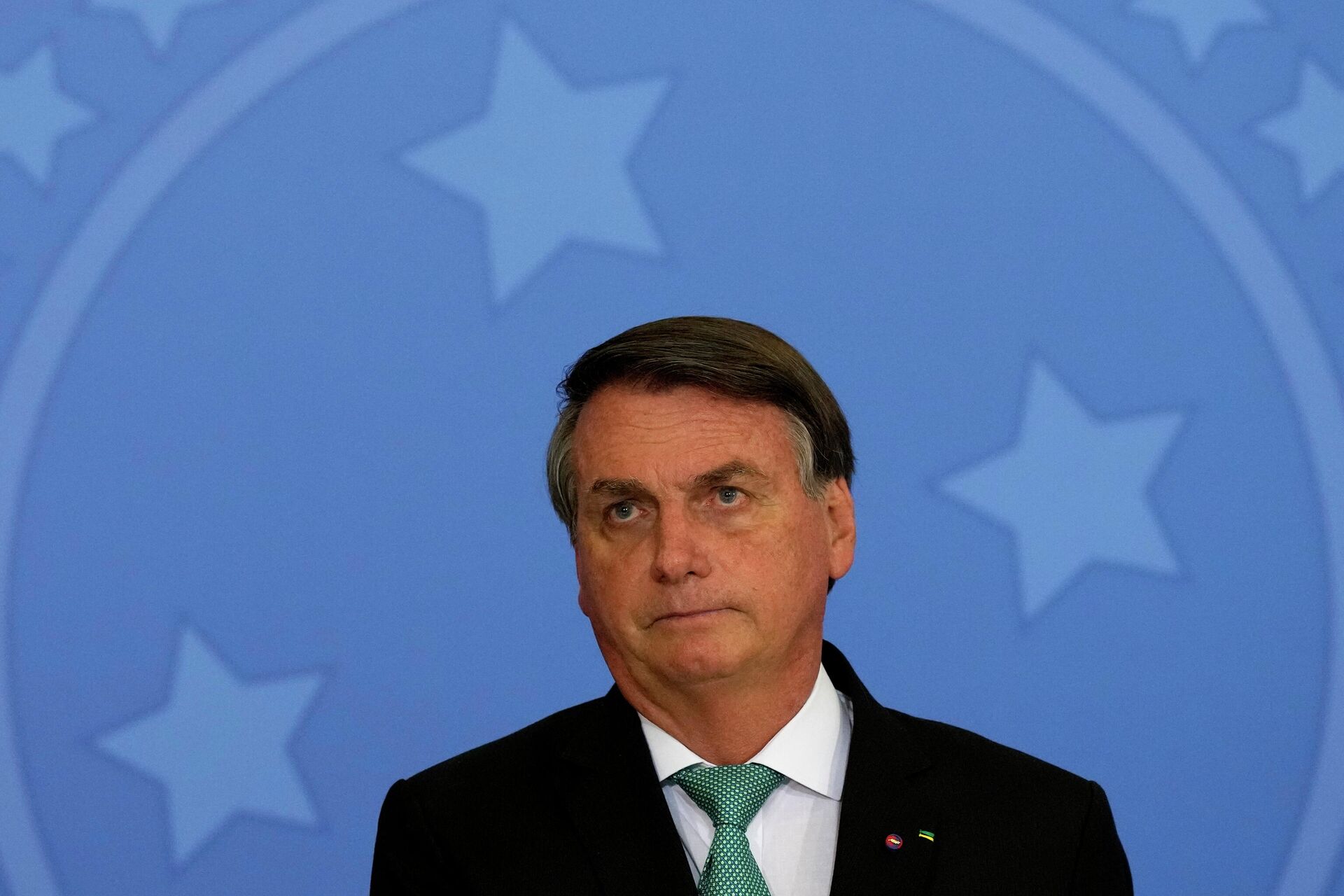Why Summit of the Americas Boycott Is Another Step Towards Latin America’s Integration
16:36 GMT 09.06.2022 (Updated: 12:06 GMT 08.08.2022)

© AFP 2023 / PEDRO PARDO
Subscribe
Even though Brazilian President Jair Bolsonaro is taking part in the ninth Summit of the Americas, top leaders from Mexico, Bolivia, Guatemala, Honduras and El Salvador are all absent from the US-hosted event, as well as those of Cuba, Venezuela and Nicaragua.
The Biden administration's decision to remove Cuba, Venezuela and Nicaragua from the list of invitees to the ninth Summit of the Americas has triggered a domino effect, with Mexican President Andrés Manuel López Obrador opposing Washington's move and announcing that he would skip the summit, which is being held in Los Angeles from 6-10 June.
A number of left-leaning Latin American leaders followed AMLO’s suit, while Guatemala’s president Alejandro Giammattei refused to attend the meeting over Washington's barring of Maria Consuelo Porras, the country's top prosecutor. The boycotting nations dispatched lower-level delegations instead of their premiers.
"President López Obrador had a decisive manoeuvre of 'soft power' towards the region, whose strategy is to maintain a good image of Mexico in the region, boosting its regional leadership through good 'public relations' actions, such as a vindication of the 'Latin American Cause" (La Patria Grande), in this case with the request for inclusion of countries considered 'wayward' in the region (Venezuela, Cuba, Nicaragua) by Washington," says Argentine academic Juan Martín González Cabañas, who is a professor at the Universidad Popular del Chaco, and a researcher at the Jorge Abelardo Ramos Institute and Brazil’s UFPeL Geopolitics Laboratory.
The Mexican leader's absence from the summit is especially notable given that migration and displacement are due to be at the centre of the discussions. Mexico is not only the third-most populous country in the Americas after the US and Brazil, but also the gateway to the southern US border, where illegal immigration flow is currently at a four-decade high.
"This is an interesting Mexican institutional and diplomatic manoeuvre, but at the geo-economic and geopolitical level, due to its geographical proximity and economic interdependence with the United States, it's really difficult to think that in the future Mexico could lead a true regional and continental Latin American bloc of an autonomous character," says González Cabañas.

Brazil's President Jair Bolsonaro attends a ceremony on the National Day of People with Disabilities, at the Planalto presidential palace, in Brasilia, Brazil, Monday, Sept. 27, 2021.
© AP Photo / Eraldo Peres
Brazilian President Agreed to Participate
Biden's gathering could have ended in disaster if Brazilian President Jair Bolsonaro, the head of the largest Latin American country, also skipped the event.
It had long been unclear whether Bolsonaro - earlier dubbed the "tropical Trump" after emulating some of Donald Trump's flagship policies - would travel to the City of Angels. However, in late May, Brasilia confirmed that Bolsonaro would attend the summit and hold a meeting with US President Biden.
His decision, however, does not represent a true rapprochement between the Brazilian right-wing leadership and the US Democratic administration: Bolsonaro continues to be at odds with the White House as their agendas differ in many respects, according to González Cabañas.
"Despite not being a supporter of the 'Socialist Camp' or the 'Patria Grande', Bolsonaro simply does not feel comfortable with the model of globalism proposed by Biden in various agendas (gender, environment, among others)," says the Argentine academic.
Biden's Embarrassment
Meanwhile, Mexico, Bolivia, Guatemala, Honduras and El Salvador’s boycott has dealt a heavy blow to the Biden administration's effort to re-assert US influence in the region, admits the US press.
However, González Cabañas argues that only Washington is responsible for the unfolding embarrassment.
Firstly, it is ironic that Joe Biden decided to side-line Havana, despite his former boss, Barack Obama, kicking off the "Cuban thaw" which was considered one of the "milestones" of US foreign policy towards the region in recent years, says the scholar.
Secondly, Washington has made a series of mistakes of late in maintaining relations with its Latin American neighbours.
With references to 'loyalties' instead of 'interests', and conditioning policy without offering attractive alternatives have led to a paralysis of US foreign policy towards the region, according to González Cabañas.
What’s more, Washington's arrogant attitude towards what it has long considered its "backyard" sits in sharp contrast with China's approach, which is "based on a double strategy of making significant investments at the economic level without stifling Latin American governments with political and geopolitical demands," underscores the scholar.
"The failure of a Summit of the Americas with the US as host would be a major diplomatic blow, but without sufficient geopolitical cohesion, a true continental joint movement, a hypothetical counterbalance, represented in this case by the boycott of a Summit of the Americas, will only be symbolic," says González Cabañas. "Currently the region is still very weakened and fragmented; the Latin American and South American leadership has a very delicate predicament, which requires it to be up to the challenges of its time."

